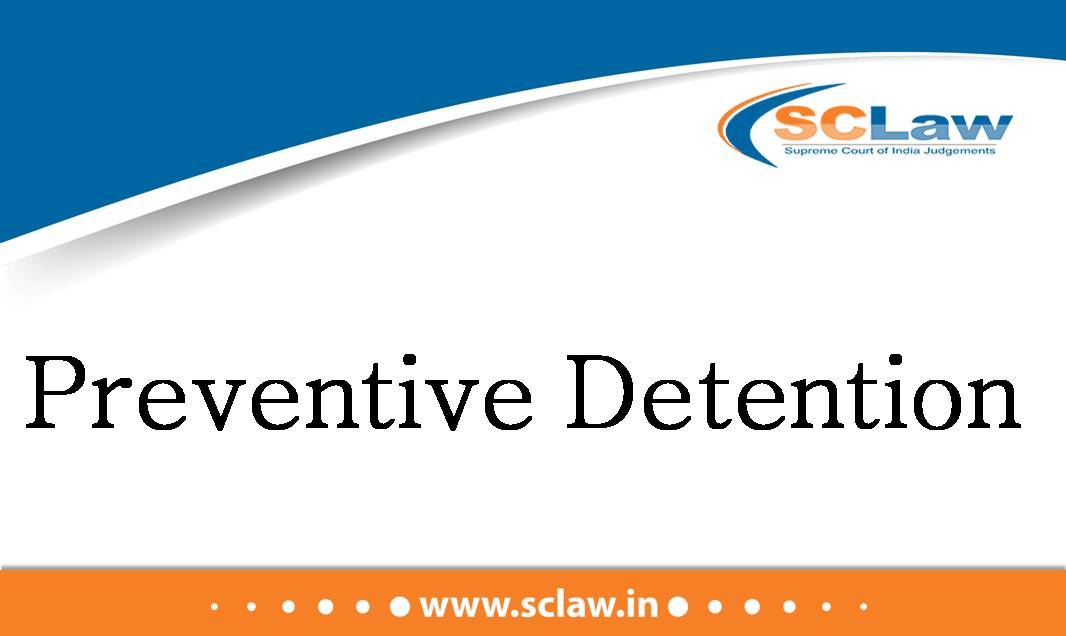Criminal Procedure Code, 1973, S.439~Bail-Appeal against Cancellation-Manner in which deceased was allegedly attacked and number of injuries inflicted prima facie indicate pre-meditation—Period of incarernation of accused in jail would not entitle enlargement on bail—Court yet to record testimonies of witness including complainant—Fair trial can be ensured only if appellants/accused not released on bail—Bail declined.
(2017) AIR(SCW) 5398 : (2017) AIR(SC) 5398 : (2018) AllSCR(Crl) 44 : (2018) 1 ApexCourtJudgments(SC) 279 : (2018) 1 CriCC 850 : (2017) 4 Crimes 525 : (2018) 1 JBCJ…
Accident—Transfer of vehicle before Accident—Absence of intimation of transfer to Insurance Company—Insurance Company still liable to pay third party claim.
2018(3) Law Herald (SC) 1936 : 2017 LawHerald.Org 2210 2017) AAC 2149 : (2017) 3 ACC 728 : (2017) ACJ 2608 : (2017) AIR(SCW) 3572 : (2017) 4 AIRJharR 549…
First appellate court is the last court on facts. We find no perversity in the findings of the first appellate court. The said court has found on admission ” that there was landlord-tenant relationship. After entering such a finding only, the eviction was ordered on the ground of arrears of rent.
2018(3) Law Herald (SC) 1935 : 2018 LawHerald.Org 1408 IN THE SUPREME COURT OF INDIA Before Hon’ble Mr. Justice Kurian Joseph Hon’ble Mrs. Justice R. Banumathi Civil Appeal No. 5823…
MADRAS HC::::LLB Course—Student cannot be denied admission to three year LL. B course only on the ground that he had cleared the 10th standard privately.
NOTE – NOT SC JUDGEMENT 2018(3) Law Herald (SC) 1923 (MAD.) (FB) : 2018 LawHerald.Org 1407 IN THE HIGH COURT OF MADRAS Before *” Hon’ble Ms. Chief Justice Indira Banerjee…
It is well established that courts must not go deep into the merits of the case when considering a bail application. All that needs to be established from the record is the existence of a prima facie case against the accused. While considering an application for bail, courts must take into account certain factors such as the existence of a prima facie case against the accused, the gravity of the allegations, position and status of the accused, the likelihood of the accused fleeing from justice and repeating the offence, the possibility of tampering with the witnesses and obstructing the courts as well as the criminal antecedents of the accused.
HEAD NOTE It is well established that courts must not go deep into the merits of the case when considering a bail application. All that needs to be established from…
Remand of Case-Due Consideration—It was not clear as to what was that due consideration which persuaded the Division Bench to dispose of the petitions as only facts are set out—Case remanded back to be decided afresh
(2018) 7 JT 426 : (2018) 9 Scale 199 SUPREME COURT OF INDIA DIVISION BENCH CENTRAL BOARD OF TRUSTEES — Appellant Vs. M/S INDORE COMPOSITE PVT. LTD. — Respondent ( Before : Abhay…
Arbitration Agreement—Clause which is inserted in an Agreement for the purpose of prevention of a dispute will not be an arbitration agreement.
2018(3) Law Herald (SC) 1914 : 2018 LawHerald.Org 1405 SUPREME COURT OF INDIA DIVISION BENCH SHYAM SUNDER AGARWAL — Appellant Vs. P. NAROTHAM RAO — Respondent ( Before : R.F. Nariman and Indu…
SARFAESI—Security Interest—Mere classification of a property in the revenue record as agriculture does not render it agriculture land.
2018(3) Law Herald (SC) 1909 : 2018 LawHerald.Org 1404 IN THE SUPREME COURT OF INDIA Before Hon’ble Mr. Chief Justice Dipak Misra Hon’ble Mr. Justice A.M. Khanwilkar Hon’ble Mr. Justice…
Right to Information—Candidate who appeared in Public Service Commission examination is entitled to see their answer sheets
2018(3) Law Herald (SC) 1899 : 2018 LawHerald.Org 1400 IN THE SUPREME COURT OF INDIA Before Hon,ble Mr. Justice Madan B. Lokur Hon’ble Mr. Justice Deepak Gupta Civil Appeal No.…
Prevention Detention—Unexplained delay of 5 days by District Magistrate in sending report to State Government—Detention Order vitiated.
2018(3) Law Herald (SC) 1903 : 2018 LawHerald.Org 1403 IN THE SUPREME COURT OF INDIA Before Hon’ble Mr. Chief Justice Dipak Misra Hon’ble Mr. Justice A.M. Khanwilkar Hon’ble Mr. Justice…















